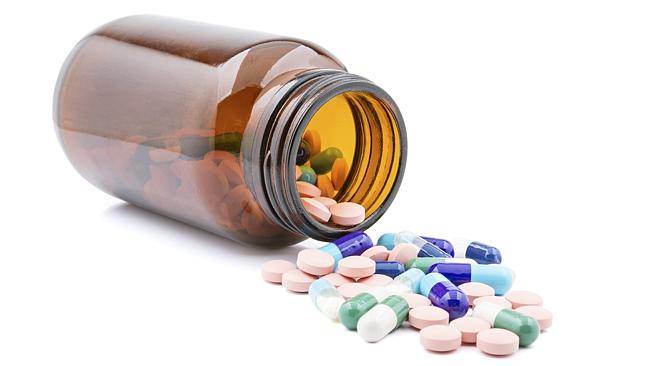
Medicine drought … Pharma companies are no longer applying to get some of their medicines subsidised because Australia’s system is too onerous a survey has found. Picture: Supplied Source: Supplied
AUSTRALIANS are missing out on breakthrough new medicines because pharmaceutical companies think it’s too hard to get them subsidised here.
Nearly nine in ten big pharmaceutical companies say they considered not applying for a government subsidy for their medicines in the last two years.
This is up from 52 per cent two years ago.
And half the medicines that do seek a subsidy don’t get approved first time around, down from 89 per cent in 2010.
Consulting firm Price Waterhouse Coopers surveyed 23 drug companies about their attitude to Australia’s drug approval system, and found nearly two thirds thought the system had not improved or had deteriorated in the last two years.

Bitter pill … Australians are still waiting for access to medicines subsidised overseas. Picture: Supplied Source: ThinkStock
In March, a Medicines Australia report found Australians were still waiting on a subsidy for 31 medicines that were reimbursed in at least 10 other developed countries.
These included 13 cancer drugs, such as melanoma drug zelboraf, lung cancer drug Giotrif, and leukaemia drug Bostinib that have not been recommended for subsidy.
Thousands of high cost prescription medicines are subsidised on the Pharmaceutical Benefits Scheme, where a government subsidy reduces the price to $6.10 for a pensioner and $37.70 for a general consumer.
And patients who need medicines not covered by the scheme can face astronomical expenses of more than $180,000 a year.
The crippling cost of new medicines is forcing patients to raid their superannuation, sell their homes and cars and beg family for money to buy precious extra months and years of life.
A Senate report last week found it can take more than one and a half years to get a subsidy for new cancer medicines under Australia’s system.

Hard to swallow … The crippling cost of some unsubsidised medicines is forcing Australians to raid their superannuation or sell their homes to fund treatment. Picture: News Corp Source: News Limited
It called for a comprehensive review of the system for the registration and subsidisation of medicines that will look at whether our system could fast track subsidies by relying on drug assessments carried out overseas.
The Department of Health says drug companies are partly to blame for delays.
On average, drug companies don’t apply for a subsidy in Australia until 38 weeks after they apply for reimbursement in the US, and 29 weeks after they ask for a subsidy in Europe, the PBAC says.
The Price Waterhouse Coppers report says pharmaceutical companies are becoming increasingly reluctant to get medicines on the PBS because the process is costly, lengthy and they must fight hard to get the price they want for their medicine.

Sickening … Australia’s medicines approval process is lengthy, costly and the prices we pay mean some drug companies won’t seek a subsidy for a drug. Picture: Supplied Source: Supplied
“If the risk is too high that the resulting PBS price will be unviable, companies are often not even going through with the cost of an application,” the report says.
Too often expensive to make new medicines are compared on price to off patent medicines that are very cheap, the report says.
And the system does not take into account benefits of the medicine which may make it possible for a sick person to work, keep them out of hospital or suffer fewer serious side effects.
Companies told the survey they wanted greater clarity on the assumptions, calculations and comparator selections used by the independent Pharmaceutical Benefits Advisory Committee which decides which medicines are recommended for subsidy.
Half the companies surveyed thought there had been some improvement in processes in the last two years.
The current government has listed 24 new medicines on the PBS per month compared to 8 per month under the previous government, but it is unclear if these are breakthrough drugs or generic versions of existing medicine.

Too hard … Medicines Australia CEO Tim James says the report shows medicine companies are facing a difficult reimbursement process. Source: News Corp Australia
The medicines industry will take a $6.6 billion hit under a new pharmacy agreement that includes a mandatory 5 per cent price cut in prices after a new medicine has been on the medicine subsidy scheme for more than five years.
Medicines Australia chief Tim James said the cuts had led to a strong feeling of uncertainty around market access and the current business environment.
“The PwC survey shows that our member companies are facing an increasingly difficult reimbursement process, along with the Federal Budget measures, leading to delayed access to some new medicines,” Medicines Australia chief Tim James said.
The Government set up a review into the drug approval process late last year.
Originally published as The medicines Aussies can’t get
